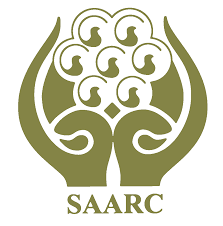Boycotts cast shadow on SAARC summit
The 19th SAARC summit scheduled for November 9-10 in Islamabad is set to be postponed as Bangladesh, Afghanistan, Bhutan and India pulled out of participation in the summit, according to diplomatic sources in Dhaka and Kathmandu.
According to the SAARC charter, presence of all the heads of the governments or heads of the states of the member countries is mandatory for holding the summit.
The SAARC secretariat would need to make a formal announcement for rescheduling of the 19th summit.
Bangladesh on Tuesday evening informed Nepal, the current chair of the South Asian Association for Regional Cooperation, that ‘Bangladesh is unable’ to participate in the proposed summit in Islamabad.
Four of the eight member countries of the SAARC, made the identical decision to boycott the summit in Islamabad when India sought to isolate Pakistan in the wake of attack on its base in the disputed region of Kashmir, which killed 18 soldiers and triggered public fury.
The foreign ministry said, without naming Pakistan, in a Note Verbale sent to the foreign ministry of Nepal and the SAARC Secretariat in Kathmandu, that the ‘growing interference in the internal’ matters of Bangladesh by one country created an environment which was not conducive to the successful hosting’ of the summit in Islamabad.
‘Bangladesh, as the initiator of [the] SAARC process, remains steadfast in its commitment to regional cooperation, connectivity and contacts but believes that these can only go forward in a more congenial atmosphere,’ the Note Verbale said.
Bangladesh’s Note Verbale was almost similar to the Indian Note Verbale that reached the SAARC Secretariat in Kathmandu few hours before Bangladesh communicated on Tuesday evening.
State minister for foreign affairs M Shahriar Alam, however, said on Wednesday the decision to boycott Islamabad SAARC Summit
was purely Bangladesh’s own decision.
‘It has no relation with the decisions of the other countries. It’s our own decision,’ Shahriar told reporters at his office.
Bangladesh government was also accusing Pakistan of interference in Bangladesh’s internal affairs over execution of 1971 war crimes convicts.
Afghanistan said in its Note Verbale that ‘due to increased level of violence and fighting as a result of imposed terrorism on Afghanistan’, the president of the country, with his responsibilities as the commander-in-chief ‘will be fully engaged, and will not be able to attend the summit’.
Bhutan said in its Note Verbale that it was concerned over the ‘recent escalation of terrorism in the region, which has seriously compromised the environment’ for the successful holding of the summit.
Afghanistan, Bangladesh and Bhutan are close allies of India.
For the first time in the SAARC history, more than one country expressed inability to attend a summit.
Current SAARC chair Nepal said that it hoped the issues would be resolved but could not comment on whether the summit would go ahead.
‘The host will take decisions regarding the summit,’ said Jhabindra Aryal, a joint secretary of the Nepal’s foreign ministry, according to Agence France-Presse.
Nepal is set to hold a two-day regional conference in Kathmandu on effectiveness of the SAARC in September 29-30. Former foreign minister Dipu Moni, also the chairman of the parliamentary standing committee on the foreign ministry, is representing Bangladesh in the conference.
Maldives and Sri Lanka are also members of the eight-nation SAARC established in 1985.
Pakistan said it remained ‘committed to peace and regional cooperation’ and accused India of perpetrating ‘terrorism’ on its soil.
‘As for the excuse used by India the world knows that it is India that has been perpetrating and financing terrorism in Pakistan,’ tweeted Pakistan foreign ministry spokesman Nafees Zakariya late Tuesday, citing the capture of an Indian intelligence officer in Balochistan earlier this year.
Under pressure to act after the Kashmir raid, Indian prime minister Narendra Modi warned Pakistan in a speech on Saturday that India would push to make it a pariah state.
Pakistan denied any involvement in the September 18 attack, the worst of its kind in over a decade.
India and Pakistan have fought three wars since partition in 1947, two of them over Kashmir, where the two countries regularly exchange fire across the disputed border.
The last SAARC summit was held in Nepal in 2014.
News Courtesy: www.newagebd.net











